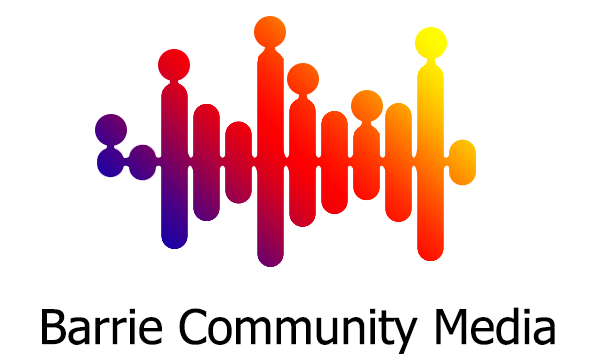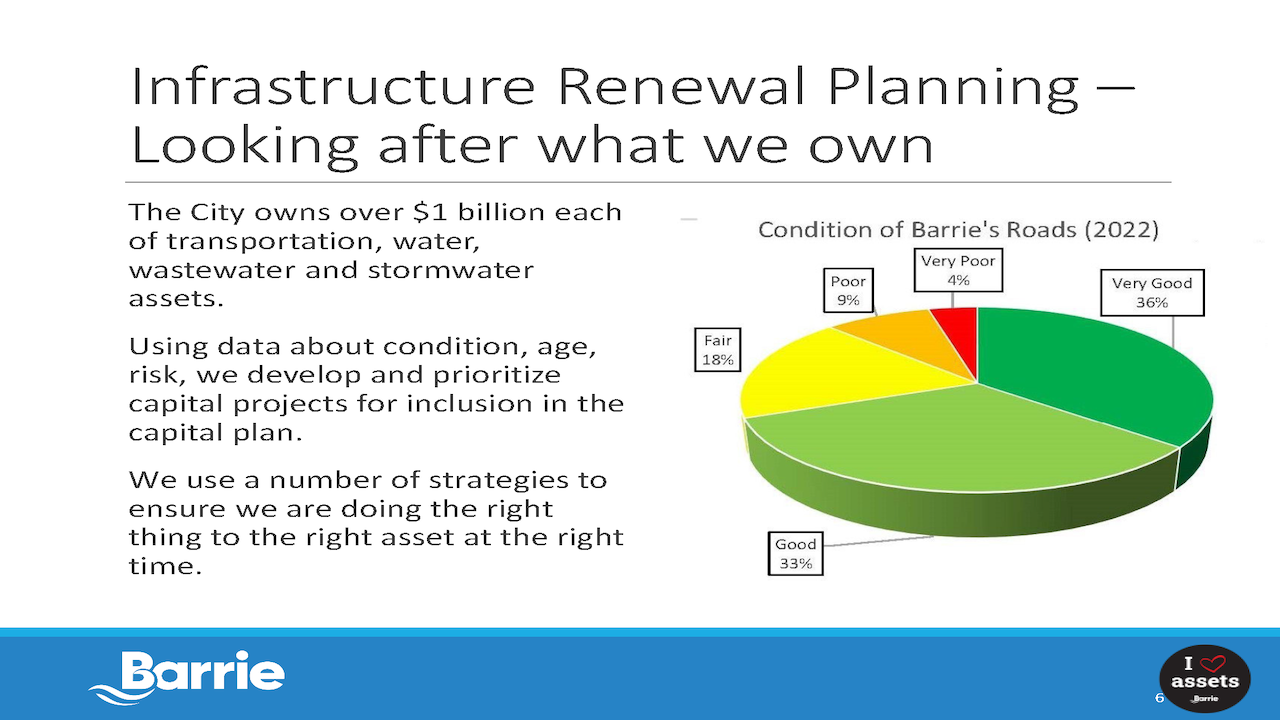Barrie’s City’s population is expected to double by 2051, and the city’s Master Plan identifies the infrastructure needed to support this growth. The Corporate Asset Management Department (CAM) provides input into the Master Plan regarding the maintenance of the existing infrastructure and the construction of new ones.
The city has 17 full-time staff working to manage more than $4 billion worth of core infrastructure, including water, wastewater, transportation, and stormwater assets.
Associate Director of Corporate Asset Management Kelly Oakley gave a presentation to the council about the work her department does. Oakley said her team helps fill the infrastructure gap, the difference between what the city needs to invest and what it actually invests. She said a provincial regulation, Reg 588, also “requires us to do certain types of asset management planning by certain milestones.”
To ensure the quality of infrastructure, the city hires structural engineers to inspect bridges every two years and contractors to put CCTV cameras in sewers, to monitor their condition. To monitor road quality, a map is generated using Global Information System (GIS). GIS helps decide which roads need a complete rebuild and which need a quick fix. “Once we’ve got all this information, we prioritize the most critical needs. And that’s what makes it into the capital plan,” she said. “You can actually see that the city’s roads are in pretty good condition in fact better than the national average.”
During the meeting, an amendment to the procedural bylaws regarding in camera meetings was discussed and passed unanimously. The amendment prohibits council members from communicating by electronic means, such as messaging, emailing, or using recording devices, unless explicitly permitted by the mayor or clerk. Going forward council members will not be able to carry their smartphones, smart watches and tablets in the meeting.



